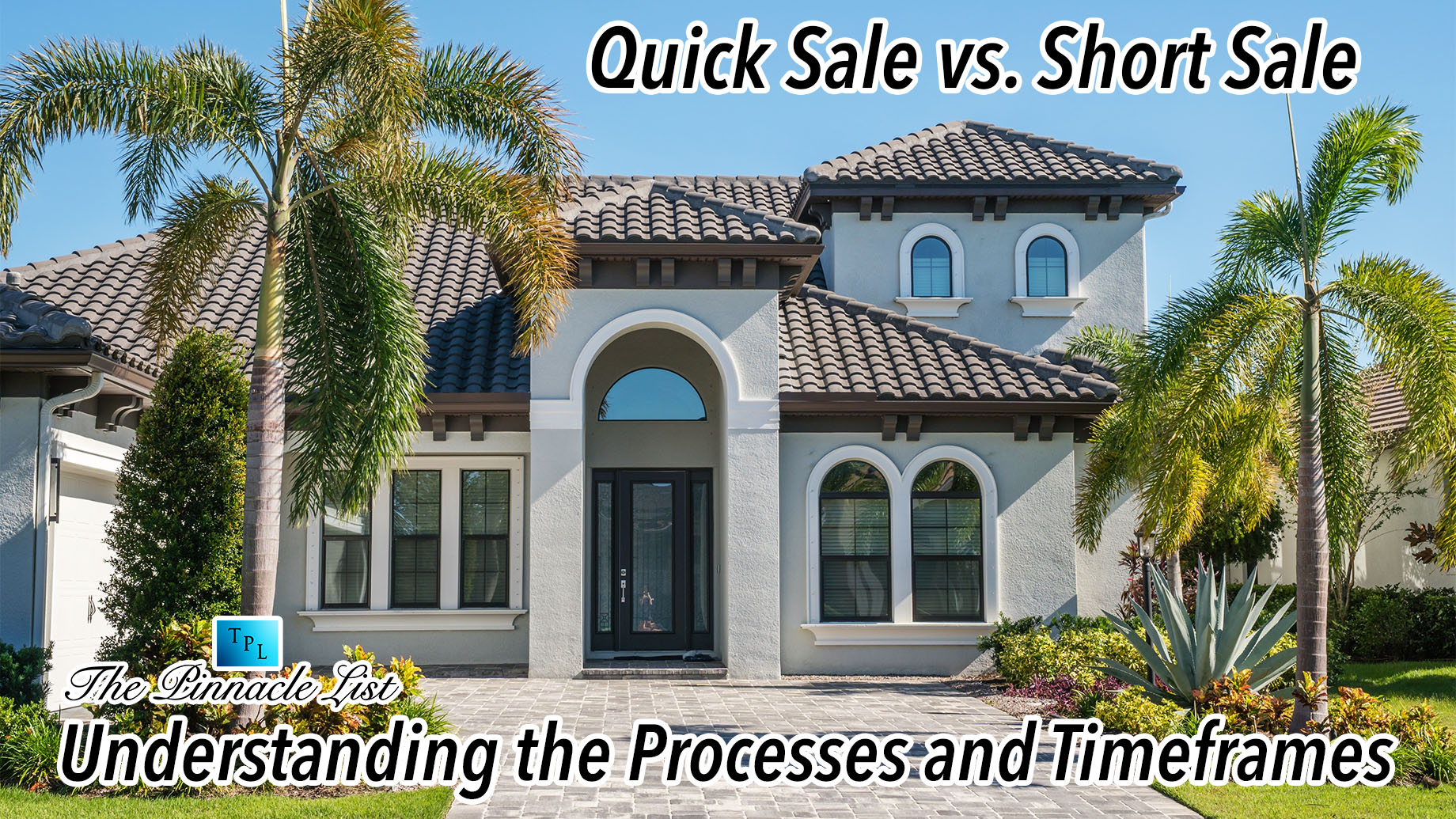
If you’re selling a house, you might hear about “quick sales” and “short sales.” These terms can be confusing because they both suggest a faster way to sell a home. However, they are very different in how they work and what they mean for buyers and sellers.
Knowing these differences, such as in a quick sale vs short sale scenario, can help you make the right choice, especially if you need to sell an inherited house or are dealing with money troubles. Keep reading to uncover all the details.
What is a Quick Sale?
A quick sale happens when a homeowner sells their property fast, usually to a cash buyer or real estate investor. This process skips many steps of a regular home sale, like staging the house, holding open houses, or waiting for a buyer to get a mortgage.
Quick sales are often chosen by people who need money right away or want to avoid the time and effort of selling through the traditional market. The trade-off is that you’ll likely sell the house for less than its full market value.
What is a Short Sale?
A short sale is different. This happens when a homeowner owes more on their mortgage than the house is worth. In this case, the homeowner must ask the lender (usually a bank) for permission to sell the house for less than the loan amount.
The lender must agree to the sale because it will lose money. Short sales often happen when homeowners can’t keep up with mortgage payments. Lenders need time to review financial documents and decide whether to approve the sale.
In many cases, a short sale can be an alternative to a short sale foreclosure, giving the homeowner a chance to settle their debt without losing the home in foreclosure.
How are Quick Sales and Short Sales Different?
The biggest difference between a quick sale and a short sale is the length of the process and who is involved.
A quick sale is fast and simple. It doesn’t need a lender’s approval because the homeowner owns the house outright or owes less than the sale price. Quick sales can often be finished in a week. If you’re looking to see your house fast in La Marque, a quick sale could be an excellent option, providing a streamlined process without the delays associated with other types of sales.
A short sale, on the other hand, takes much longer because the lender has to approve it. This process can take months as the lender reviews the seller’s finances and decides if the deal works for them.
How to Decide Which Option is Right?
If you need to sell fast and can accept a lower price, a quick sale might be ideal. If you’re in financial trouble and want to avoid foreclosure, short sales and foreclosures may offer different outcomes, with a short sale helping you reduce debt and avoid foreclosure. Either way, it’s wise to work with a real estate professional who understands these processes.
Making the Right Choice: Quick Sale vs Short Sale
Selling a house quickly doesn’t always mean the same thing. Quick sales and short sales have unique benefits and challenges. Understanding these differences, such as in a quick sale vs short sale, can help you make the right choice for your situation.
Whether you want to sell fast or need help with mortgage debt, being informed is the first step to a smart decision. Explore more! Our blog has everything you need to know!